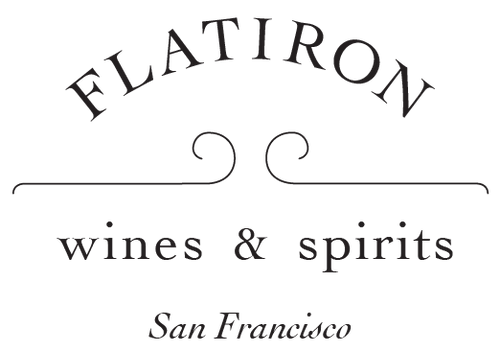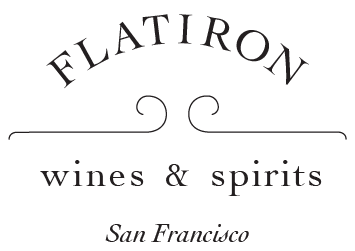
Spotlight on Austria
At their best, natural wines possess a purity of fruit and energy that can't be replicated by conventional practices.
There's a spectrum of what constitutes "natural", of course, but all the wines offered today come from organically (or biodynamically) farmed grapes, are unfiltered, and use very little (if any) sulfur to stabilize the wines.
While there are dedicated natural winemakers throughout the world, I’ve started to notice that many of my favorites hail from in and around Austria.
Today we're offering a selection of mostly recent acquisitions from three producers that succinctly capture what going on in the hills of central Europe.
While the Alps are Austria’s most distinct geographic feature, all of its vineyards are in the east and south of the country. There, soft hills ease to the east into the Pannonian plain toward Hungary, south toward Slovenia and north toward the big skies of Moravia in the Czech Republic.
This deeply continental climate with its cold, snowy winters, warm summers and extended, sunny autumns are perfect for the indiginious varieties that these natural producers prefer to work with.
There is less disease pressure and thus less need for inputs in the vineyard and throughout the entire winegrowing/making process.
The resulting wine is clean and transparent with qualities that can only come from this exceptional terroir.
Stylistically these span the gamut, from fun and easy to complex and cellar worthy.
Christian Tschida
When it comes to raw material, Christian Tschida has it pretty good. He cultivates 10-hectares of old vines that have been with his family for 4 generations, since the 19th century. The winery is located in the Neusiedlersee part of Burgenland, the eastern most point of Austria, more traditionally known for red and sweet wine production.The soil underfoot consists of sandy gravel, schist and limestone. The continental climate is moderated by extremely large and nearby Lake Neusiedler. Vineyard are farmed according to
Christian takes a hands-off approach to winemaking. His wines spend a great deal of time in barrel and thus in contact with oxygen, some for as many as 5 years before bottling. He says the key to all his wines is the vertical basket press he uses. This tool is like a modern re-imagining of an old manual screw press. Christian says he uses very light pressure when he presses, comparable to the amount of pressure a hand shake would exert. By doing this he extracts only the best juice from the grapes. He then returns the must and remaining juice to the vines, in a special preparation he makes to aid the health of the vineyard.
Christian ferments all of his wines in closed top tanks that sit outside in the shade, in which the grapes are foot stomped. After which the juice is moved inside to barrel for aging. As of the 2015 vintage, all of Christian’s wines are made without any additions of sulfur. The wines are never racked, and everything is bottled by hand to preserve the freshness of the wine and leave a little residual carbon dioxide to aid preservation.
Tschida‘s wines are undoubtedly seductive. They have made it to the worlds’ top restaurants as well as on the shelves of the lucky few wine lovers who have gotten a hold of them. They are marked by soaring aromas, crazy textures and real finesse. To drink a bottle of Tschida is an unforgettable experience.
Shop Christian Tschida.
Christina
The story of Christina is on the label. It represents the critters that happily cohabitate with Christina Netzl in her family vineyards. Things weren't always this way. In 2007 Christina returned to the family's 70 acres, after studying oenology and wine management in London, and decided to go organic. In 2013 she began converting to organic techniques, and by 2018 the estate began the organic certification process.
Located in the Carnuntum winemaking region, the winery is just east of Vienna and north of the Neusidler. The warm summer days are cooled off by cold winds blowing off the Danube in the evening. This, along with high iron red gravel and loess soils, help retain acidity in Christina’s wines. The Zweigelt for this rosé is picked at optimal ripeness with all that acid keeping the fruit crunchy.
The primitive cellar practices would not be unfamiliar to the Romans who once occupied these lands. This Rose spends a few hours on it’s skins before racking. A long cold fermentation helps retain freshness. Christina uses zero additives through the wine making process except for a minute amount of sulfur at bottling. Her wines are never fined or filtered.
Christina’s wines are focused, bright and full of joy. They possess that nervy vibrancy that are emblematic of great natural wines. And like many Austrian natural wines we’ve come across, they deftly balance fruit mineral and acidity. They are a joy to drink and a steal to boot. Prost!
Shop Christina.
Weingut Brand
Founded in 1891, the Brand winery has been producing wine in the Pfalz for five generations. However, the Brand brothers are electrifying their little town and this forgotten region. And they are doing so with huge smiles and a raucous joy in their role as stewards for the land.
Their vineyards are located on limestone-rich soils around the village of Bockenheim, in the northern part of the region, along the border of the Rheinhessen. Daniel and Jonas' father, Jürgen, always farmed their vines responsibly, but when his children took over, they immediately transitioned to organic viticulture, gaining certification in 2017.
It’s a rather curious blend of youthful exuberance, a surplus of energy and an unflappable belief in the future of viticulture in their vineyards, tempered by a maturity that is surprising given their ripe ages of 26 and 30. The Brothers Brand also utilize biodynamic treatments, always experimenting to discover which practices work best in their vines. All of their wines are made with little, if any, added sulfites.
You might have remembered their liters of Weissburgunder that we offered back in June, a delightful introduction to their much wider range of wines. The Brand brothers have quietly experimented more and more with zero sulfur winemaking. Their pet nats are riveting, ultra-light testaments to what this region is capable of. In the already saturated world of pet nats, they have a dedicated following and disappear quickly. The rather long and eccentric list of zero sulfur “Pur” wines that the brothers released reflects experimentation both in the vineyards and in the cellars. It is still a work in progress, though a number of wines are already sure-footed and captivating, unique testaments to a world beyond Riesling.

